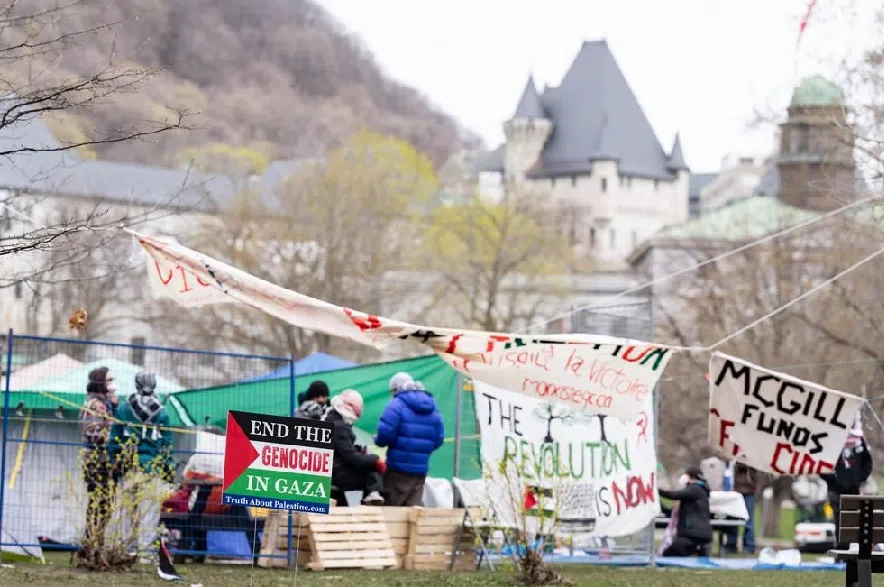Montreal’s McGill University says it has requested police assistance to remove an encampment set up on campus by pro-Palestinian activists.
The university said today it called for police help after protesters refused its demands to leave.
McGill says police have started “their own process” for removing the dozens of tents that have been installed on the lawn of its downtown campus.
Montreal police spokeswoman Véronique Dubuc says they have received McGill’s request and are evaluating “different avenues” to respond.
Later today, a lawyer representing two McGill students is scheduled to argue in Quebec Superior Court for an injunction against the protesters.
Activists have said they have no intention of dismantling their tents until McGill, as well as nearby Concordia University, divest from all companies that protesters claim are “profiting from genocide.”
McGill has said many of the activists, if not the majority, are not members of the school community and that it had seen video of some people using “unequivocally antisemitic language and intimidating behaviour.”
Pro-Palestinian protesters have also set up an encampment at the University of British Columbia’s Point Grey Campus, while the University of Toronto and the University of Ottawa have both warned that encampments on campus will not be tolerated.
The encampments, which come just ahead of the end of final exams at McGill on Tuesday, follow a wave of similar protests across campuses in the United States linked to the Israel-Hamas war.
Encampment members in Montreal have demanded that McGill divest from Israeli companies it says are “complicit in the occupation of Palestine.” They also want the school to cut academic ties with Israeli institutions.
UBC officials say they are monitoring the situation there and are reminding protesters to follow the university’s policy and the law while taking protest action.
B.C. Premier David Eby says student leaders and the administration should balance the need for free speech on campus with the need to foster safe spaces, especially for Jewish students during a time when they need additional support to feel safe.
This report by The Canadian Press was first published April 30, 2024.
The Canadian Press







